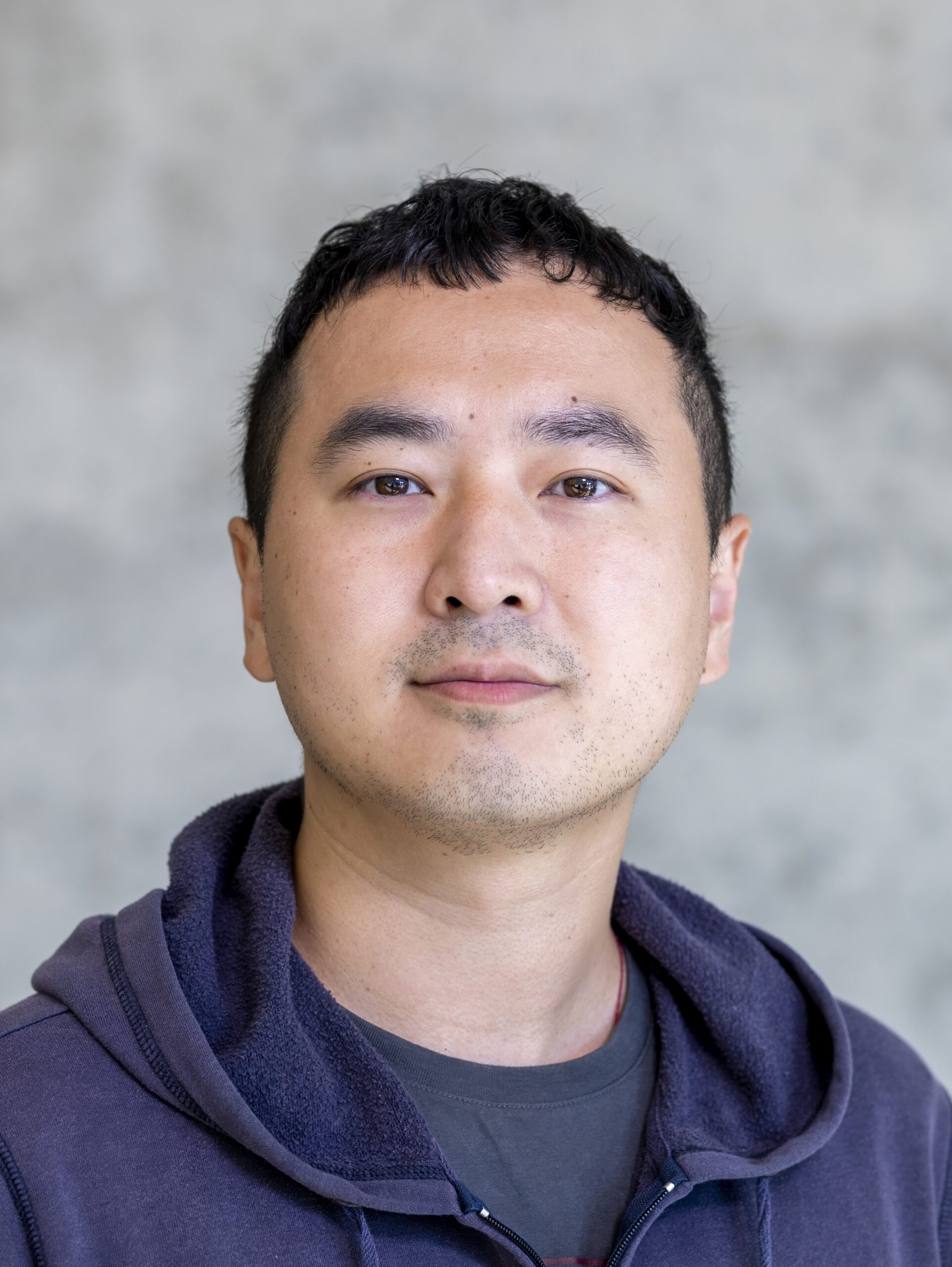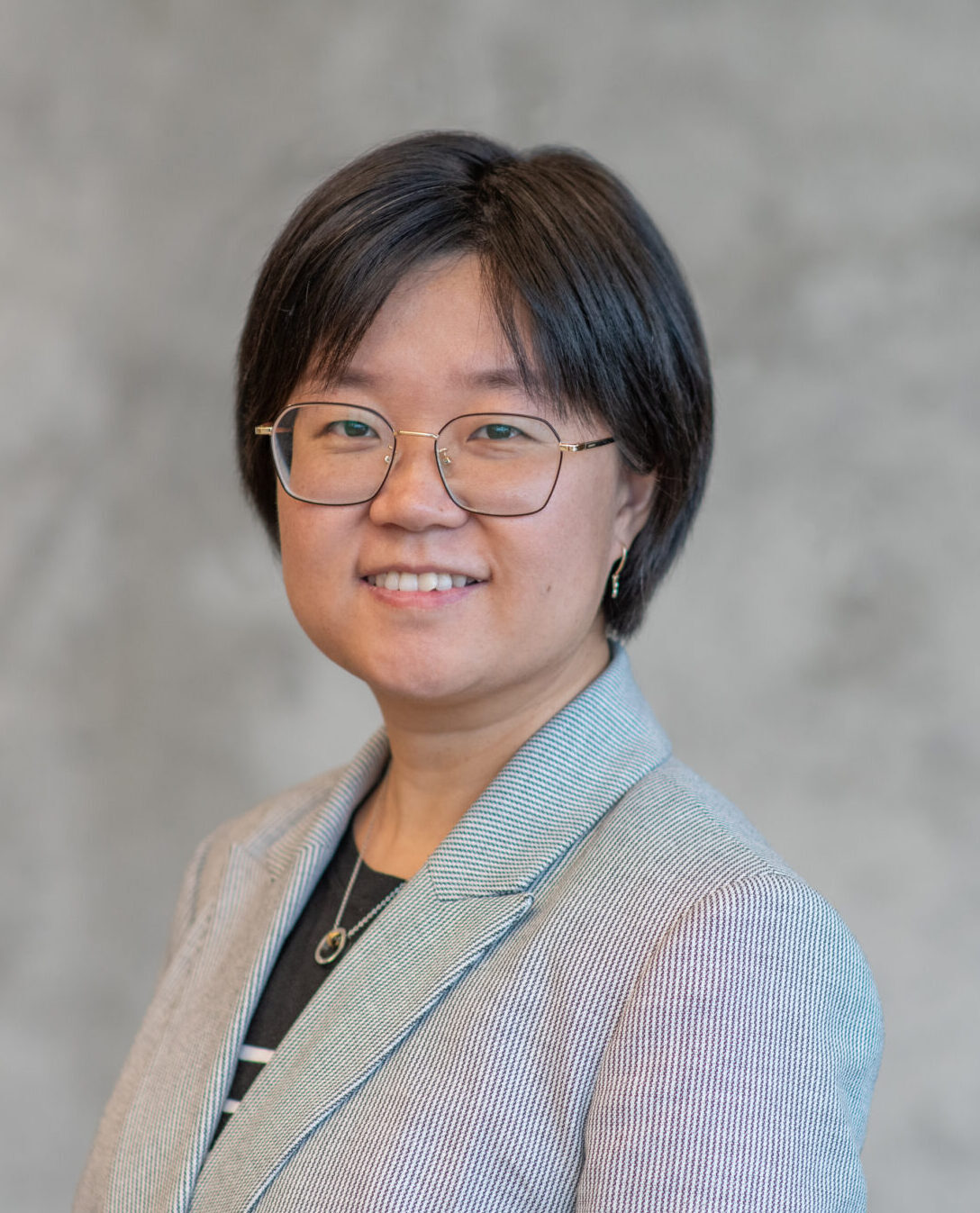Zhang Laboratory
Structural Biology, Immunology and Pathogen-Host Interactions
 The Zhang Lab uses cryo-EM and biochemistry to study how the immune system responds to various disease conditions, including pathogen infection, cancer and metabolic disorders.
The Zhang Lab uses cryo-EM and biochemistry to study how the immune system responds to various disease conditions, including pathogen infection, cancer and metabolic disorders.
The immune system exists in a delicate equilibrium. It must protect the body by identifying, combating and clearing pathogens, cancer cells and dead cells. At the same time, it must carefully orchestrate its individual components to guard against overactivity and prevent damage to healthy tissues. Failures in immune processes can result in inflammatory conditions and autoimmune disorders. Likewise, infections and diseases such as cancer evoke significant immune responses, which can dysregulate the system’s careful balance and result in chronic, damaging inflammation.
One of our interests is to understand inflammasome pathways, from inflammasome activation to pyroptotic cell death, with the goal of translating our findings into novel drugs for infections, chronic inflammation and cancer. Using cutting-edge structural biology techniques, our earlier work elucidated key facets of the NAIP/NLRC4 inflammasome, which comprises multiprotein complexes that trigger inflammatory responses during an immune reaction. The lab’s research in this area is ongoing. We utilize cell biology, genetics and bioinformatics — in combination with structural biology — to systematically study the mechanisms of inflammasomal proteins and their functions in the innate immune system.
News & Publications
Learn More
Structural biologist and inflammation expert Dr. Liman Zhang joins Van Andel Institute
Shen C, Pandey A, Tuipulotu AE, Mathur A, Liu L, Yang H, Adikari CK, Ngo C, Jing W, Feng S, Hao Y, Zhao A, Kirkby M, Kurera M, Zhang J, Venkataraman S, Liu C, Song R, Wong JJL, Schumann U, Natoli R, Wen J, Zhang L, Kaakoush NO, Man SM. 2024. Inflammasome protein scaffolds the DNA damage complex during tumor development. Nat Immunol 25:2085–2096.
Paidimuddala B, Cao J, Zhang L. 2023. Structural basis for flagellin induced NAIP5 activation. Sci Adv 9(49).
Paidimuddala B*, Cao J*, Nash G, Xie Q, Wu H, Zhang L. 2023. Mechanism of NAIP/NLRC4 inflammasome activation revealed by cryo-EM structure of unliganded NAIP5. Nat Struct Mol Biol 30: 159–166.
*Co-first authors
Our Impact
We're raising thousands to save millions
We’re turning hope into action for the millions of people around the world affected by diseases like cancer and Parkinson’s. Find out how you can help us make a difference.
- 122 peer-reviewed papers published in 2024, 63 of which were in high-impact journals
- 15 VAI-SU2C Epigenetics Dream Team clinical trials launched to date
- 10 clinical trials co-funded by VAI & Cure Parkinson's (out of 41 total International Linked Clinical Trials Program trials)
Liman Zhang, Ph.D.
Associate Professor, Department of Structural Biology
Areas of Expertise
Structural biology, cryo-EM, immunology, pathogen-host interactions, inflammasome
Biography
Dr. Liman Zhang is a structural biologist who studies how the immune system responds to infection and cancer.
She earned her B.S. in biotechnology from Jilin University and her Ph.D. in biochemistry from the National Institute of Biological Sciences, Beijing (NIBS). She then completed a postdoctoral fellowship at Harvard Medical School and Boston Children’s Hospital.
In 2020, she established her lab at Oregon Health & Science University, where she built a research program that explored the molecular mechanisms underlying immunological processes. Her expertise in cryo-EM and biochemistry revealed critical new insights into the NAIP/NLRC4 inflammasome, which comprises multiprotein complexes that trigger inflammatory responses during an immune reaction.
In 2024, she joined Van Andel Institute’s Department of Structural Biology as an associate professor.
She has received several awards for her work, including the 2023 Outstanding Research Faculty Award (Chemical Physiology and Biochemistry Department) from Oregon Health & Science University, a Medical Research Foundation New Investigator Award, a prestigious K99/R00 Pathway to Independence Award from the National Institute of Allergy and Infectious Diseases of the National Institutes of Health and a Cancer Research Institute Postdoctoral Training Fellowship.
Selected Publications
For a full list of Dr. Zhang’s publications, please visit PubMed.
2026
Han Y, Zhang L. 2026. Structural biology of innate immune recognition. In: Kaye P, editor. Encyclopedia of Immunobiology. 2nd ed. London: Elsevier. p. 737–749.
2024
Shen C, Pandey A, Tuipulotu AE, Mathur A, Liu L, Yang H, Adikari CK, Ngo C, Jing W, Feng S, Hao Y, Zhao A, Kirkby M, Kurera M, Zhang J, Venkataraman S, Liu C, Song R, Wong JJL, Schumann U, Natoli R, Wen J, Zhang L, Kaakoush NO, Man SM. 2024. Inflammasome protein scaffolds the DNA damage complex during tumor development. Nat Immunol 25:2085–2096.
2023
Paidimuddala B, Cao J, Zhang L. 2023. Structural basis for flagellin induced NAIP5 activation. Sci Adv 9(49).
Paidimuddala B*, Cao J*, Nash G, Xie Q, Wu H, Zhang L. 2023. Mechanism of NAIP/NLRC4 inflammasome activation revealed by cryo-EM structure of unliganded NAIP5. Nat Struct Mol Biol 30: 159–166.
*Co-first authors
2022
Cao J, Nash G, Zhang L. 2022. Structural mechanisms of inflammasome regulation revealed by cryo-EM studies. Curr Opin Struct Biol 75:102390.
Nash G, Paidimuddala B, Zhang L. 2022. Structural aspects of the MHC expression control system. Biophys Chem 284:106781.
2020
Chen J, Zhang L, Ye K. 2020. Functional regions in the 5′ external transcribed spacer of yeast pre-rRNA. RNA 26:866–877.
2018
Zhang L, Wu H. 2018. Bad germs are trapped. Cell Res 28(2): 141–142.
Yang X, Yang F, Wang W, Lin G, Hu Z, Han Z, Qi Y, Zhang L, Wang J, Sui S-F, Chai J. 2018. Structural basis for specific flagellin recognition by the NLR protein NAIP5. Cell Res 28:35–47.
2016
Zhang L*, Wu C*, Cai G, Chen S, Ye K. 2016. Stepwise and dynamic assembly of the earliest precursors of small ribosomal subunit in yeast. Genes Dev 30:718–732.
* Co-first authors
2015
Zhang L*, Chen S*, Ruan J, Wu J, Tong AB, Yin Q, Li Y, David L, Lu A, Wang WL, Marks C, Ouyang Q, Zhang X, Mao Y, Wu H. 2015. Cryo-EM structure of the activated NAIP2/NLRC4 inflammasome reveals nucleated polymerization. Science 350:404–409.
* Co-first authors
Hauenstein AV*, Zhang L*, Wu H. 2015. The hierarchical structural architecture of inflammasomes, supramolecular inflammatory machines. Curr Opin Struct Biol 31: 75 –83.
* Co-first authors
2013
Zhang L, Lin J, Ye K. 2013. Structural and functional analysis of the U3 snoRNA binding protein Rrp9. RNA 19: 701–711.
2011
Lin J*, Zhang L*, Lai S, Ye K. 2011. Structure and molecular evolution of CDGSH iron-sulfur domains. PLoS One 6: e24790.
* Co-first authors
Lin J, Lai S, Jia R, Xu A, Zhang L, Lu J, Ye K. 2011. Structural basis for site-specific ribose methylation by box C/D RNA protein complexes. Nature 469: 559–563.
2009
Ye K, Jia R, Lin J, Ju M, Peng J, Xu A, Zhang L. 2009. Structural organization box C/D RNA-guided RNA methyltransferase. Proc Natl Acad Sci U S A 106: 13808–13813.

Nancy Duchaine
Senior Administrative Assistant I, Department of Structural Biology

Yixiong Han
Ph.D. Student, VAI Graduate School
Research focus to be determined.

Nicole Marcia Horne
Assistant Research Technician, Department of Structural Biology




